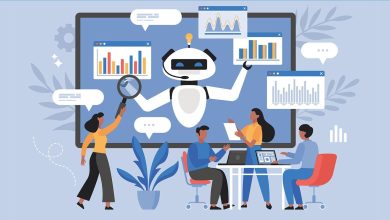
Attributed to: Simon Liau, CEO of Finworld
In the dynamic landscape of business and employment, the impact of technology continues to expand, revolutionising various aspects of organisations. One area that has witnessed a remarkable surge in adoption and innovation is human resources (HR), which serves as the backbone of any successful organisation.
Traditionally viewed as an administrative function, HR has undergone a profound digital transformation, revolutionising the way organisations manage their workforce. Recruitment, onboarding, payroll, and other HR processes have become increasingly digitised, enabling organisations to embrace efficiency and effectiveness.

However, in my opinion, simply digitising HR processes is no longer sufficient in today’s rapidly evolving landscape. To truly harness the power of technology and address the increasing complexity of HR operations, organisations need to begin incorporating automated elements to their HR tech. By embracing HR automation, companies can unlock a host of benefits that go beyond efficiency gains. Cutting-edge technologies, such as artificial intelligence (AI), machine learning (ML), and data analytics, have paved the way for smarter, data-driven HR practices.
Using HR tech to empower efficiency and precision in HR operations
Automated HR processes transform the way organisations handle HR tasks, offering a plethora of benefits. Gone are the days of tedious manual tasks prone to human error, such as data entry and calculations. With the advent of automated HR systems, these tasks are now handled by sophisticated software that ensure consistency and accuracy.
While HR processes are digitised and stored on computers, human involvement still plays a significant role. After all, we’re the ones responsible for giving instructions and managing these advanced systems. But here’s the beauty of it: automated HR systems are designed to eliminate repetitive manual tasks, reducing the chances of errors caused by tired eyes or a momentary lapse in concentration. By doing so, I believe that HR teams can reclaim their time and unlock new levels of accuracy and reliability in wider operations.
No longer bound by the mundane, HR professionals can now focus on what truly matters – the human touch. Gone are the days of being data entry operators; they are now architects of exceptional employee experiences! With automation taking care of repetitive tasks, organisations can invest their valuable time in fostering genuine connections, nurturing talent, and creating a workplace that thrives on empathy and collaboration.
Unleash insights for informed decision-making with HR tech
Automated HR systems can facilitate streamlined operations by providing a centralised platform for managing various HR functions. By consolidating employee data, documentation, and workflows in one place, organisations can access information quickly and efficiently. This centralised approach minimises the risk of information fragmentation and improves data integrity. HR professionals can easily retrieve employee records, track employee leave, generate accurate payroll reports, and monitor compliance with labour regulations — all with just a few clicks.
One of the standout features of automated HR systems is their reporting and analytics tools. The ability to generate comprehensive reports on employee performance, attendance, and other relevant HR metrics empowers HR professionals to identify trends, patterns, and other areas for improvement. These data-driven insights are pivotal in informed decision-making, aligning HR strategies with broader organisational goals.
Picture this: by analysing performance data, HR can identify organisations’ high-performing stars, celebrate their achievements and fuel their growth. They can also gain a deep understanding of areas that may require additional training or support, ensuring that no employee is left behind.
And let’s not forget about employee satisfaction and engagement — the lifeblood of a thriving organisation. Through insightful analytics, organisations can gain a panoramic view of turnover rates, unearthing the underlying reasons and addressing them head-on. With this knowledge, organisations can implement effective retention strategies, creating a work environment that keeps valued team members motivated, fulfilled, and excited to contribute their best.
HR tech safeguards sensitive employee information
In addition to the efficiency and analytics benefits, automated HR systems also address data privacy and security concerns. By leveraging HR automation, companies can ensure secure storage of sensitive employee information in encrypted databases or cloud-based platforms.
Furthermore, automated HR systems enable organisations to track data usage through detailed audit trails. These audit trails provide a comprehensive record of who accessed or modified HR data, when the actions were performed, and from which devices or locations. By maintaining a transparent and traceable log of data activities, organisations can detect and investigate any suspicious or unauthorised access attempts swiftly. This level of data monitoring and accountability enhances overall data security and strengthens compliance with privacy regulations.
Additionally, automated systems can enable regular data backups and implement disaster recovery protocols, ensuring that HR data remains protected even in the event of system failures or unforeseen circumstances.
A synergy between HR tech and its professionals
 Finworld’s HR Tech platform
Finworld’s HR Tech platform
In the fast-paced world we live in, where technology reigns supreme, it’s easy to perceive the rise of automation as a threat to the human touch. For me, automation isn’t here to replace us; it’s here to empower us. I see automation as a catalyst that propels us to excel in our roles where our strategic and value-added responsibilities take centre stage. In fact, this has prompted Finworld ourselves to venture into the HR automation scene, with our very own HR technology platform, launched in 2023.
By shouldering the burden of repetitive tasks, software like this allows HR professionals to shift their focus to what truly matters: nurturing talent, fostering employee engagement, and shaping the organisation’s cybersecurity culture.
Thing is, as technology evolves, so do the methods employed by those seeking to exploit it. This is how I see HR professionals, not just IT departments, play a crucial role in making cybersecurity a top priority. They can champion a cybersecurity-first approach within the organisation, ensuring employees are trained to be vigilant against cyber threats.
By bringing their expertise to the forefront, HR can foster a collaborative and technology-driven work environment. They become catalysts for positive change, leveraging automation and technology to streamline HR processes, improve employee experiences, and drive organisational success. Through human insight and technological advancements, HR professionals can create a harmonious balance that maximises the benefits of automation while preserving the invaluable human touch in human resources.




